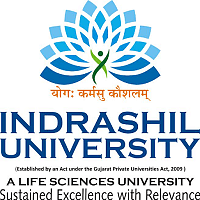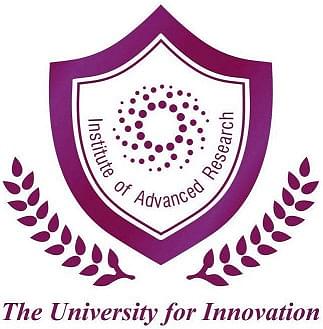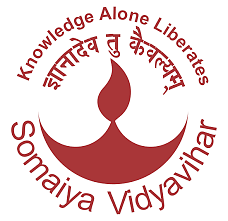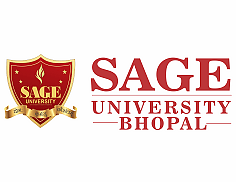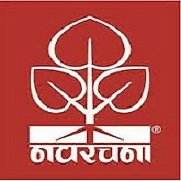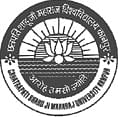Introduction:
The
M.Sc. in Optometry/Clinical Optometry program offered by Maharashtra University provides advanced training in the field of
optometry, focusing on both theoretical knowledge and practical skills
necessary for providing comprehensive eye care. This program is designed to
equip students with the expertise required to diagnose, manage, and treat
various ocular conditions, as well as to promote eye health and visual
well-being.
Career Opportunities:
1.
Optometrist:
·
Graduates
of the M.Sc. in Optometry/Clinical Optometry program can work as optometrists
in various settings, including private clinics, hospitals, optical stores, and
eye care centers.
·
Optometrists
conduct comprehensive eye examinations, prescribe corrective lenses, diagnose
and manage common eye conditions, and provide pre- and post-operative care for
patients undergoing refractive surgery.
2.
Specialist Clinician:
·
With
further specialization or additional training, graduates can pursue careers as
specialist clinicians in areas such as pediatric optometry, geriatric
optometry, low vision rehabilitation, contact lens fitting, or sports vision.
·
Specialist
clinicians work with specific patient populations or address specialized visual
needs, providing tailored care and treatment options.
3.
Researcher:
·
Some
graduates may choose to pursue careers in research, working in academic institutions,
research organizations, or industry settings.
·
They
may conduct studies on various aspects of optometry, vision science, or ocular
disease, contributing to the advancement of knowledge in the field and the
development of new treatment modalities and technologies.
4.
Educator:
·
Graduates
with a passion for teaching and education can pursue careers as educators in
optometry schools or colleges.
·
They
may teach courses in optometric theory and practice, supervise clinical
rotations and internships, and mentor students pursuing careers in optometry.
5.
Public Health Advocate:
·
Optometrists
can also work as public health advocates, promoting eye health awareness,
advocating for policies to improve access to eye care services, and
participating in community outreach programs aimed at preventing blindness and
visual impairment.
Admission Process:
1.
Eligibility Criteria:
·
Candidates
must have a Bachelor of Optometry (B.Optom) degree or an equivalent
qualification from a recognized institution.
·
A
minimum aggregate score in undergraduate studies may be required for
eligibility.
2.
Application Submission:
·
Obtain
the application form for the M.Sc. in Optometry/Clinical Optometry program from
Maharashtra University's official website or admissions office.
·
Fill
out the application form accurately and completely, providing all required
personal and educational details.
3.
Document Submission:
·
Submit
attested copies of educational transcripts, degree certificate, internship
completion certificate (if applicable), and any other documents specified by
the university.
·
Include
identification proof (such as Aadhar card, passport, or driver's license) and
passport-sized photographs with the application.
4.
Entrance Exam (if applicable):
·
Maharashtra
University may conduct an entrance exam to assess candidates' aptitude and
suitability for the program.
·
Candidates
may need to prepare for the entrance exam by studying topics related to
optometry, vision science, and general aptitude.
5.
Interview (if applicable):
·
Shortlisted
candidates may be called for an interview to assess their motivation,
communication skills, and suitability for the program.
·
The
interview may include questions about the candidate's academic background,
professional goals, and interest in optometry.
6.
Admission Offer:
·
Successful
candidates will receive an offer of admission from top Maharashtra University.
·
The
offer letter will specify the terms and conditions of admission, including the
program start date, tuition fees, and registration process.
7.
Fee Payment and Enrollment:
·
Pay
the tuition fees and any other applicable fees as per Maharashtra University's fee structure.
·
Complete
the enrollment process by submitting the required documents and undertaking the
necessary formalities.
The
M.Sc. in Optometry/Clinical Optometry program at best Maharashtra University offers students a comprehensive
education and practical training in the field of optometry. Graduates emerge
with the knowledge, skills, and clinical experience necessary to pursue diverse
career opportunities in optometry practice, research, education, and public
health advocacy. Through a combination of rigorous academic coursework,
hands-on clinical experience, and research activities, students are prepared to
make meaningful contributions to the field of optometry while providing
high-quality eye care services to individuals and communities.
M.Sc. in
Optometry/Clinical Optometry Course at Maharashtra University: Syllabus, Fee
Structure, Hostel Facility
Syllabus:
The
M.Sc. program in Optometry/Clinical Optometry at affordable
Maharashtra University offers a comprehensive curriculum designed to equip
students with the knowledge and skills required for a successful career in
optometry. The syllabus includes theoretical instruction, practical training,
clinical rotations, and research components. Below is an outline of the typical
syllabus:
1.
Basic Sciences:
·
Anatomy
and Physiology of the Eye
·
Biochemistry
and Pathophysiology of Vision
·
Pharmacology
for Optometrists
·
Ocular
Microbiology and Immunology
2.
Optometric Sciences:
·
Geometrical
Optics and Optical Instruments
·
Ocular
Physiology and Optics
·
Visual
Optics and Refraction
·
Binocular
Vision and Ocular Motility
3.
Clinical Optometry:
·
Ophthalmic
Examination Techniques
·
Contact
Lens Practice and Management
·
Low
Vision Aids and Rehabilitation
·
Pediatric
Optometry and Vision Therapy
4.
Specialty Areas:
·
Ocular
Diseases and Therapeutics
·
Geriatric
Optometry and Vision Care
·
Sports
Vision and Performance Enhancement
·
Occupational
Optometry and Ergonomics
5.
Research Methodology:
·
Basics
of Research Design and Data Analysis
·
Literature
Review and Critical Appraisal
·
Research
Ethics and Publication Practices
·
Dissertation/Thesis
Writing and Presentation
6.
Clinical Practicum:
·
Supervised
Clinical Training in Optometry Clinics and Hospitals
·
Hands-on
Experience in Patient Care, Diagnosis, and Management
·
Clinical
Rotations in Specialty Areas such as Glaucoma, Retina, and Cornea
7.
Professional Development:
·
Communication
Skills and Patient Counseling
·
Practice
Management and Ethical Considerations
·
Interdisciplinary
Collaboration and Teamwork
·
Continuing
Education and Professional Growth
Fee Structure:
The
fee structure for the M.Sc. program in Optometry/Clinical Optometry at Maharashtra University may vary
depending on factors such as the institution, infrastructure, and facilities
provided. Below is a general overview of the typical fee structure:
1.
Tuition Fees:
·
The
tuition fees for the entire duration of the M.Sc. program typically range from
INR 50,000 to INR 1,00,000 per year.
·
This
fee may cover costs associated with academic instruction, laboratory
facilities, library access, and other educational resources.
2.
Registration and Admission Fees:
·
Candidates
may be required to pay a one-time registration fee and admission processing fee
at the time of enrollment.
·
The
registration and admission fees usually range from INR 5,000 to INR 20,000.
3.
Examination Fees:
·
Students
may need to pay examination fees for each semester or academic year to cover
the costs of conducting examinations and evaluation processes.
·
Examination
fees typically range from INR 2,000 to INR 5,000 per semester.
4.
Miscellaneous Fees:
·
Miscellaneous
fees may include charges for library facilities, laboratory equipment, student
welfare activities, and other services provided by the university.
·
These
fees can vary and may amount to approximately INR 10,000 to INR 20,000 per
year.
Hostel Facility:
The
Maharashtra University may offer
hostel facilities for students enrolled in the M.Sc. program in
Optometry/Clinical Optometry. The hostel provides accommodation, dining, and
recreational facilities to students, creating a conducive environment for
learning and personal development. Below are some key features of the hostel
facility:
1.
Accommodation Options:
·
The
hostel offers different types of accommodation options, including single rooms,
double rooms, and dormitory-style rooms.
·
Rooms
are equipped with basic amenities such as beds, study tables, chairs,
cupboards, and fans.
2.
Dining Facilities:
·
The
hostel has a dining hall where students can enjoy nutritious and hygienic
meals.
·
The
menu includes a variety of vegetarian and non-vegetarian dishes to cater to
diverse dietary preferences.
3.
Recreational Facilities:
·
The
hostel provides recreational facilities such as common rooms, TV lounges,
indoor games, and outdoor sports facilities.
·
Students
can relax, socialize, and engage in leisure activities during their free time.
4.
Security and Safety:
·
The
hostel premises are equipped with security measures such as CCTV cameras,
security guards, and access control systems to ensure the safety and well-being
of residents.
·
Wardens
and hostel staff are available round-the-clock to address any concerns or
emergencies.
5.
Hygiene and Maintenance:
·
The
hostel maintains high standards of cleanliness and hygiene in living areas,
bathrooms, and common areas.
·
Regular
cleaning, pest control, and maintenance activities are carried out to ensure a
comfortable and healthy living environment.
6.
Study Environment:
·
The
hostel provides a conducive environment for study and academic pursuits, with
quiet study areas and access to library resources.
·
Students
can focus on their studies and academic projects without distractions.
The
M.Sc. program in Optometry/Clinical Optometry at Maharashtra University offers a comprehensive curriculum,
affordable fee structure, and comfortable hostel facilities to support the
academic and personal growth of students. Through a combination of theoretical
instruction, practical training, clinical rotations, and research activities,
students develop the knowledge, skills, and professional competencies required
for a successful career in optometry. The hostel facility provides a safe, convenient,
and conducive living environment, allowing students to focus on their studies
and personal development while enjoying a fulfilling university experience.





